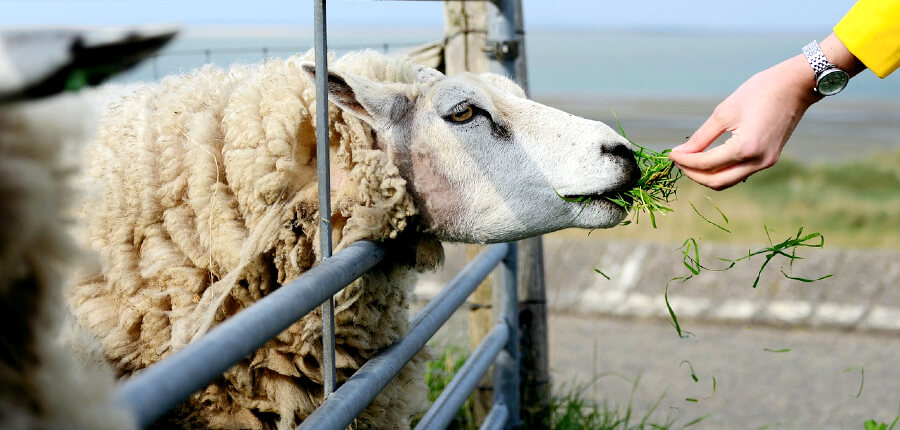I was just a high school freshman when I joined the Future Farmers of America—better known as FFA. At 15, I had visions of petting cows, playing with pigs and getting to hang out with cool animals. And I did get to do all of that. I joined FFA because I’ve always had a deep affinity for animals, and being up close and personal was very appealing. My rose-colored glasses fogged up very quickly, though, as I listened to the program coordinators encourage participants to view animals as “things.” That’s not how I felt at all.
I quickly grew frustrated when, instead of teaching us that all animals are individuals with unique personalities, needs and feelings, all our classes focused on animal agriculture and hammered home the message that our fellow animals are nothing more than a way to make money or win a competition. I didn’t know what the term “speciesism” meant back then, but now it’s the only way to describe FFA’s mindset—that animals are nothing more than a means to human ends.
It’s little wonder, then, that so many members of FFA and its cousin, 4-H, develop a massive disconnect from an animal they’ve spent countless hours grooming, socializing, showing and bonding with. In addition to the ultimate betrayal, when animals are sold for slaughter to the highest bidder, there have been countless disturbing cruelty cases involving participants in the program—and not just the young people.
In San Joaquin County, California, for example, an FFA adviser was reportedly caught on video punching a sheep and wrenching the animal’s neck. One of the program’s participants demonstrated a callous disregard for animals, saying, “Petting them like this isn’t going to do anything. You have to be physical to get their attention.” He added, “Sometimes they get out of hand, so you check ’em with something, just a little hit on the side. … Just [so they] know that you’re the boss.”
Parents in Marion County, Florida, were appalled after a teacher drowned an opossum and two raccoons in front of students. The agricultural science teacher apparently decided to kill the animals after one supposedly killed a chicken used in the school’s FFA program. The incident became public after the parent of a student who attends the school contacted Florida wildlife officials about it.
One moment that haunts me personally is when one of my ag teachers (and an FFA adviser) brought in a calf who had died at his farm. He covered the floor with trash bags and proceeded to dissect the calf in front of the entire class. The detachment and callousness of the act felt like a blow. The teacher cut the calf’s body into pieces with as much dispassion as changing the oil in his car.
While these incidents may seem extreme, animal agriculture groups like FFA are inherently cruel because the animals used in them ultimately face a violent, terrifying, bloody death. The programs are simply designed that way.
Given our national epidemic of school bullying and its often-tragic results, it’s vital that a standard of compassion be set and that students understand that harming any sentient being is wrong. The only way to ensure that animals aren’t subjected to acts of violence in schools is by not having them on campus to begin with.
Emily Rohr is a campaign coordinator with PETA’s Office of the President.





